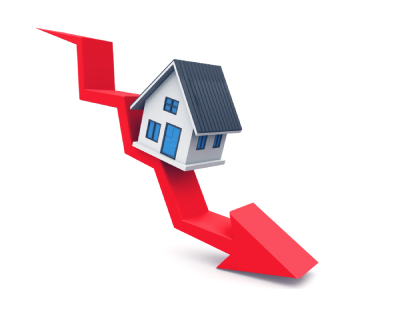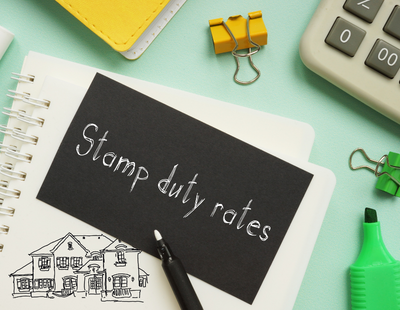Robert Gardner, chief economist for Nationwide, said: “While financial market conditions have settled, mortgage rates are taking longer to normalise and activity in the housing market has shown few signs of recovery.
“It will be hard for the market to regain much momentum in the near term as economic headwinds strengthen, with real earnings set to fall further and the labour market widely projected to weaken as the economy shrinks.”
With the chaotic backdrop and elevated mortgage rates in recent months, Gardner added that it wouldn’t be surprising if potential buyers have opted to wait until the New Year to see how mortgage rates evolve before deciding to step into the market.
Explaining why there could still be a soft landing for the housing market, he added: “Longer-term interest rates, which underpin mortgage pricing, have returned towards the levels prevailing before the mini-Budget.
"If sustained, this should feed through to mortgage rates and help improve the affordability position for potential buyers, as will solid rates of income growth (with wage growth currently running at a c.7% pace in the private sector), especially if combined with weak or negative house price growth.
“But the main factor that would help achieve a relatively soft landing, especially for house prices, is if forced selling can be avoided, and there are good reasons to be optimistic on that front. Most forecasters expect the unemployment rate to rise towards 5% in the years ahead – a significant increase, but this would still be low by historic standards.”
He suggested household balance sheets remain in good shape and said stress tested mortgages alongside affordability tests should mean most people are protected when it comes to refinancing.
Gardner said: “The fact that the housing market remained buoyant in the first three quarters of 2022, despite weak consumer confidence on the back of a stagnant economy, falling real incomes and a near tripling of mortgage rates, provides some reassurance that there will be a pickup in activity in the New Year, although it is likely to remain tepid until the broader economic outlook improves.
“Similarly, while house prices are likely to see a modest decline in 2023, perhaps of around 5%, a significant deterioration in the labour market or more elevated mortgage rates would probably be required to generate the double-digit declines suggested by some forecasters. While the risks are skewed in that direction, it doesn’t appear to be the most likely outcome.”
Commenting on the data, Lawrence Bowles, director of research at Savills, said: “With the Bank of England still set to raise rates further and no sign yet of any significant reduction in mortgage rates, we’re expecting to see slower housing market activity in the mainstream markets over the next twelve months.
“Activity is expected to remain strongest in those parts of the market least reliant on mortgage debt: specifically in equity and cash rich prime markets, where demand is driven more by flows of equity than by changes to mortgage rates.
Savills has forecast that the average UK house price will fall by 10% in 2023, with growth expected resume in 2024 as affordability pressures gradually ease.
Jeremy Leaf, north London estate agent and a former RICS residential chairman, added: “The drop in house prices is not surprising considering the sharp rise in the cost of living and especially interest rates. Prices may soften further as concerns about job security increase and uncertainty will remain until mortgage payments are seen to stabilise.
“However, the housing market continues to be supported by strong employment, lack of stock and lender forbearance, which are reducing the risk of mortgage defaults and preventing a larger fall in house prices.”
















.png)


.jpg)




.png)



Join the conversation
Be the first to comment (please use the comment box below)
Please login to comment